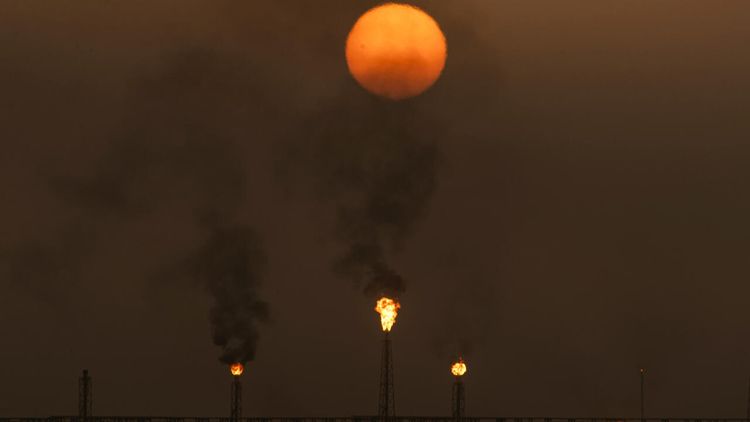Big Oil Resists Green Shift Under Pressure

Oil companies are investing more in green energy. However, activists are angry with them because they still use fossil fuels.
Blog updated on May 26, 2023 at 4:58am and modified at 2:42pm.
In the past month, campaigners attended shareholder meetings. They expressed their anger and urged energy companies to move towards cleaner projects such as solar and wind.
On Friday, a lot of people protested against France's TotalEnergies in Paris. They wanted to stop them from meeting. Some people sat in front of the building. The police had to use tear gas to make them move.
There were protests outside Shell's annual general meeting in London this week. People interrupted the CEO's speech inside. Some protesters tried to take the stage.
Activists from Fossil Free London interrupted BP's top leaders' speeches. This happened at the end of last month.
Investors want change. The Church of England's pension board also wants change. They don't like Shell's "green" plan. They want Shell to cut more carbon.
The IEA wants a halt to new oil projects to reach the 1.5C temperature goal. It began in 2021.
Energy companies are opening new oil fields to meet demand for fossil fuel.
Patrick Pouyanne, CEO of TotalEnergies, expressed his concern about climate change at the shareholder meeting on Friday. He spoke through a plexiglass that was installed for this purpose.
He said his team invested more in renewables, but oil demand is still rising. If TotalEnergies doesn't meet the demand, someone else will.
The company's climate strategy got huge support from shareholders. But, some activist investors wanted more ambitious emissions targets and only 30% of the shareholders supported them.
Oil and gas companies made big profits in 2020, but they are trying to cut emissions. However, they are only spending a small amount on renewable energy and carbon capture.
Spending on clean energy increased from 1% to 5% in 2021. This still only represents a quarter of what energy firms paid to shareholders. The data comes from the IEA.
David Tong, industry campaign manager at Oil Change International, thinks that European firms TotalEnergies and Equinor are better than others. But, according to Tong, they don't spend enough on clean energy compared to how much they invest in oil and gas.
Christophe McGlade, who is in charge of energy supply at IEA, suggests that energy companies have knowledge and experience that could be helpful in developing hydrogen, biogas, ethanol, and other low-carbon fuels. This is in addition to their work with renewable energy and carbon capture.
He said spending on technologies is important. It can help scale up and reach net zero goals. Redirecting more spending towards those technologies is necessary. It can move the needle towards success.
Energy companies focused on reducing their own carbon footprint, but it's only 15% of their overall carbon footprint.
They've been fighting methane leaks and minimizing the burning of natural gas at oil fields.
BP has reduced its emissions by 41% between 2019-2022. They have now set a new target of a 50% emissions reduction by 2030. These measures have been very helpful for BP.
US oil companies, who previously didn't think reducing emissions is necessary, have changed their mind. ExxonMobil will reduce its emissions by 20% by 2030 compared to 2016 levels.
Most of the work needs to focus on reducing the climate impact from when the products are used in cars or furnaces. This is the biggest contributor to the sector's carbon footprint, making up 85 percent.
Oil and gas companies are still spending money on exploring and extracting fossil fuels. The International Energy Agency (IEA) expects this spending to increase in 2021 and reach the same level as before the pandemic.
At the start of the year, BP said it won't meet its emissions reduction goals. They were aiming for a smaller amount of indirect emissions by 2030. Instead of cutting back by 35-40 percent as they planned, they now want to reduce by only 20-30 percent.
McGlade said companies assume we won't reach net zero targets if they expect oil and gas demand to rise. This means they don't plan to limit climate change.















































